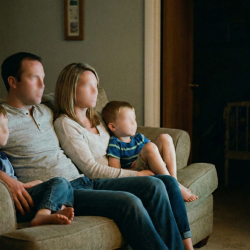Medialab boosted Laithwaites’ profitability and brand — without sacrificing short-term sales — with regional tests that increased orders, awareness and consideration, and also won a small budget effectiveness award.
The wine merchant needed to create sustainable future demand after the pandemic-driven surge in sales had slowed. And its previous approach had focused on short-term customer acquisition, rather than brand differentiation.
The brief was to develop a ‘brand-building campaign that could drive long-term growth, while proving the effectiveness of brand investment in delivering sales,’ said Steve Parker, Medialab’s executive director. The agency’s objective was to ‘reignite demand by building a stronger brand presence, reduce reliance on promotions, and prove that brand advertising could drive profitability,’ added Parker.
However, Laithwaites faced challenges.
First, declining demand, as consumers disposable incomes had shrunk and wine purchases weren’t a priority, said Laithwaites’ head of brand & partnerships, James Morrison.
Market normalisation was also a factor, as supermarket supply chains had recovered, shifting consumer shopping habits back to pre-pandemic norms. Margin pressure was another issue.
‘The category had turned into a price war, making profitability harder to maintain,’ said Morrison. Finally, the brand had also become over-reliant on promotions and discounts to drive sales.
To tackle the brief, the agency conducted extensive research and data analysis. Fifteen million rows of customer data were analysed, looking at order history, customer demographics, CRM activity, and web traffic.
A regional experimentation model was developed to test the impact of brand communications, and in-depth interviews revealed many potential customers were unfamiliar with Laithwaites, and ‘hesitant to buy wine online due to the perceived risk of quality and social pressure,’ said Parker.
Wine is usually shared between people, so there is a social consideration at play, with buyers wanting to be confident in the bottles they buy. So, faith in the wine seller was crucial, and Laithwaites needed to emphasise the authenticity and trustworthiness of their sourcing process.
The campaign targeted new customers who were hesitant to buy the brand due to lack of familiarity, lapsed customers to reignite interest, and existing ones to increase loyalty and reduce reliance on discounts. Medialab’s strategy was built around a regional testing model:
- Regional TV and digital campaigns: ITV regions were chosen as test and control. TV drove broadcast reach and excess frequency in the chosen regions, to drive awareness and fame
- BVOD (broadcaster video on demand) and YouTube were used to drive incremental reach, targeting low or no-TV watchers
- Radio and digital (Meta, X/Twitter) complemented TV exposure and helped build cost-effective frequency
- Paid search was adjusted to capture demand created by brand advertising
This regional test was designed for Laithwaites. Test and control regions were selected based on customer similarity, and past sales patterns. Granada & Yorkshire and Meridian & West were chosen for phase one, expanding to Tyne Tees vs. Border and Central vs. Anglia in phase two. Overlap between TV regions was eliminated to avoid data contamination, and metrics included brand awareness, consideration, web traffic, and actual sales.
According to Medialab’s Steve Parker, this was one of the most rigorous regional experiments in brand advertising and could be replicated for other clients, in industries where brand-building is crucial but difficult to justify financially.
The first challenge was convincing stakeholders. ‘As a family business, Laithwaites was cautious about brand investment,’ said Morrison. The campaign needed to quickly prove its effectiveness. ‘The business was also heavily reliant on short-term acquisition, so brand investment couldn’t disrupt immediate sales,’ he added.
Designing and running the regional experiment also required significant data analysis, media planning, and coordination. And there were budget constraints. The campaign had to be cost-efficient while delivering impact.
Results wise, Medialab exceeded every objective, with impact across the full funnel. The agency delivered a 10% point increase in awareness, and a 4% increase in brand consideration. There was a 13% increase in new customer orders and a 16% increase in direct traffic to the website. The campaign also delivered a 45% reduction in digital CPA (cost-per-action).
‘Building on our success with Medialab, we conducted a second burst of activity in Q4 2023, adding two time-exposed test regions alongside the original regions, covering 40% of the UK population,’ said Morrison. This delivered a further 8% increase in consideration, and a 26% increase in emotional connection. ‘This led to Laithwaites board-level approval for a national rollout in 2025,’ Morrison added. The campaign was awarded double-gold at the 2024 IPA Effectiveness awards, including Best Small Budget campaign.
Featured image: Laithwaites




























